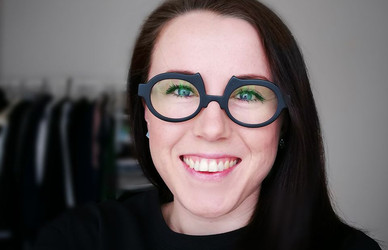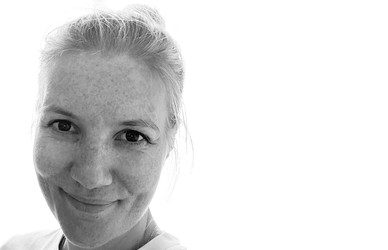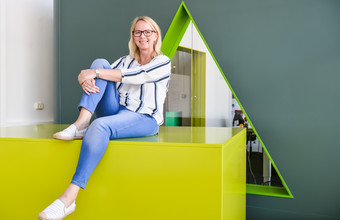We need a new Age of Enlightenment
The fundamental reason why Donald Trump, ISIS, Putin, Kim Jong-un and many others are succeeding in spreading fake news is ignorance, a lack of knowledge. What the world lacks is a critical mass of thinkers; individuals who take a step back when they hear something and ask: Is that really true? We need more anti-authoritarian individuals who dare speak truth to power, but who also realise that they can use their knowledge to impact development – the very prerequisites for a well-functioning democracy.
In Denmark general education, which was introduced in the mid-1800s, is an excellent example of how people gain their own voice and belief in their own innate abilities. Ordinary people from the countryside went to the folk high schools and gained knowledge which made them better farmers, but also better citizens.
From the outset democracy in this country was perceived as more than a form of government. Grundtvig, one of the great thinkers of the time, realised that democracy also had to be a way of life characterized by influence for all and responsibility for all. The Danish folkeskole, as well as the universities, contributed to realising this ambition – that children and students should be trained to become active citizens, not just receive a traditional education. I look back on my university years in the 1980s with great joy when my fellow students and I never missed an opportunity to oppose the professors and their entrenched ideas.
Today there is an eerie silence both at the universities and in the education world at large. Even at a creative institution like ours the silence is deafening. It appears that sometimes students may be too busy and too preoccupied with how to ensure their next A+. The forces that want to revolutionise the school and the world are few and far between (there are notable exceptions, of course!). Actually that suits management well, since we are subjected to demands for relevance, which basically means: Move the students swiftly through the programme and into the workforce.
Nonetheless I must urge all of you students here today, in the strongest possible terms, to be rebellious, to spend your time here at the school not only developing healthy critical thinking abilities, but also ensuring that you use your critiques to constructively develop a better school, a better design profession and a better society. There is a scarcity of students who are critical thinkers, not students who complain that they cannot find this, that and the other on the blackboard, or that one procedure or another has not been followed.
There is a scarcity of students who are eager to change the world, who want to help introduce new ideas for the use of design. There is a scarcity of students with passion, a devil-may-care attitude, vision and perspective.
Never before has the world needed so many well-informed, critical young talents who are capable of standing up to fake news and who use their talent to help master the development rather than seeing themselves and others as victims of development.
Design is about shaping and transforming an idea or a model from one condition into another, more preferred condition. Design is about changing and improving reality. Hence you have a strong mandate. You are the ones who can empower millions of people to believe in themselves and their own capacities. You can help demonstrate how we can actually transform the UN’s 17 Sustainable Development Goals into reality – so that women need not die in childbirth, all children go to school and have enough to eat, so that 30 per cent of the world’s food does not go to waste due to inadequate storage, so that everyone has a roof over their heads. You are the ones who are going to help figure out what we are all going to do when artificial intelligence and robots take over most of the jobs we know today. You are the ones who know how to design the fashion, the machines, the services and the business models that can keep global warming in check. Your potential is endless. You can not only think. You can do. You can change the world as we know it.
I am promising you that this school will provide you with all the professional competencies you need to actually change the world. But we cannot give you the will to do it. You have to find that yourselves, and you can start by regarding your studies and your school as a period in your life when you are supposed to find the meaning of life and of community. You must utilise your time here to become men and women of integrity, who possess knowledge, skills and DETERMINATION. For example you can learn more by getting an F provided you have risked something, rather than getting an A without really learning anything new. On the other hand it’s hardly honourable to get an F for being lazy.
Danes are incredibly privileged. We receive free university education and even grants to study. Use this privilege to do something of importance, don’t just adapt to the system and do what your teachers and management want you to do – even though, admittedly, that would make my job as Rector much easier…
We need a new Age of Enlightenment that prepares people to face the challenges of the 21st century. The educational institutions need to provide students with knowledge and competencies that are sustainable over the long term. That means first of all strengthening creativity – the ability to think innovatively and to translate novel ideas into action. From the folkeskole to the university more practical subjects are needed that involve both the hands and the head. Everyone should be taught to write code, for example, in order to experience the feeling of comprehending and mastering the new technology. However, it’s also a matter of having basic skills such as being able to cook, repair a bicycle or start an association. This year we are starting a cooking course for down-and-out students.
The most important thing, however, is a fundamental change in the culture within the field of education. It’s essential to have a critical approach. Our access to information has never been greater, but at the same time it has never been more crucial to be able to separate truth from fiction. Students must learn to be aware of how algorithms are increasingly determining what information the individual receives. The educational programmes must help the students develop a spam filter for the hard disk between their ears in order to keep their judgement intact. You need to understand and master all these new information ecosystems.
In addition the educational system ought to be even more focussed on ensuring that all citizens have access to verified information. Why not demand that all university employees spend a percentage of their time providing quality information to the public debate, in other words guarantee that more people know what they are talking about? And how about demanding that all university employees spend some time outside the world of academia a couple of times during their career in order to absorb what goes on outside the institutions while contributing their knowledge in new contexts? Here at Design School Kolding we are far ahead, since we have extensive collaboration with the business community. All our employees, not only the students, contribute, to a greater or lesser extent, to educating the community. I am pleased, for instance, that we help teach small and medium-sized enterprises how design can support a more sustainable business. That’s what we do in the project Design2innovate.
Another idea is instructing the universities to establish a fake news police that makes a daily sweep of the “news” and point out the worst errors through small clips on YouTube, Twitter, Facebook, etc. That could be done in an undogmatic fashion where researchers also present their doubts and report on all the things we still know nothing about. Let’s give all citizens the opportunity to “Ask the Professor.”
Our educational programmes should also be an active partner with the Ministry of Development Cooperation. They could develop digital, including non-verbal educational programmes that could be downloaded by everybody who has a cell phone (in 2020 that will mean approx. 90 per cent of the world’s population) free of charge – programmes that access basic knowledge about e.g. birth control, hygiene, cultivation and storage of food products, access to capital and, of course, questions related to democracy.
The first Age of Enlightenment in the history of Europe lasted from 1690 until 1800. Philosophy and science expanded people’s knowledge about the world, which meant that people started questioning authorities such as the absolute monarchy and the church. The goal of the second Age of Enlightenment must also be to expand our knowledge about the world, this time in order to prevent us from being misled by various madmen. In Denmark we have excellent examples that this is feasible. Let’s use them as initiatives to restart democracy. It will have to start with the liberation of the educational programmes, creating more edge, more insanity and more relevance based on the future as it emerges.
All of this requires you to take on your responsibility – as active, creative students who study the issues and constantly fight for something as old-fashioned as facts and truth.
As the writer Carsten Jensen said at the Cultural Meeting on Mors this summer: He who falls asleep during a democracy will wake up in a dictatorship. We need a new Age of Enlightenment. Let’s start it now – in this year as we celebrate the 50th anniversary of Design School Kolding.




